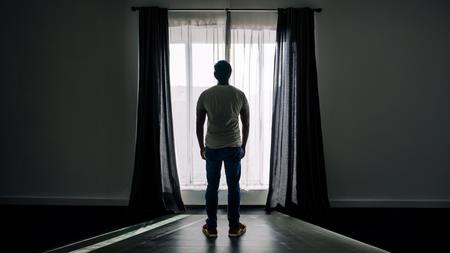
Smartphones Before 13 May Raise Suicidal Thoughts, Aggression Risk In Youth: Study
The study, published in the Journal of Human Development and Capabilities, found that 18- to 24-year-olds who had received their first smartphone at age 12 or younger were more likely to report suicidal thoughts, aggression, detachment from reality, poorer emotional regulation, and low self-worth.
Smartphones give early social media access and increase the risks of cyberbullying, disrupted sleep, and poor family relationships by adulthood, the team said.
"Our data indicates that early smartphone ownership -- and the social media access it often brings -- is linked with a profound shift in mental health and well-being in early adulthood," said lead author neuroscientist Dr. Tara Thiagarajan, the founder and Chief Scientist of US-based Sapien Labs.
Thiagarajan called for urgent action to protect the mental health of future generations, as their symptoms are not the traditional depression and anxiety, and can be missed by studies using standard screening procedures.
The researchers urged policymakers to adopt a precautionary approach, similar to regulations on alcohol and tobacco, by restricting smartphone access for under-13s. They also called for mandating digital literacy education and enforcing corporate accountability.
In recent years, several countries have banned or restricted the use of cell phones in institutions, including France, the Netherlands, Italy, and New Zealand. Several states in the US have also passed legislation requiring schools to have policies that at least limit access to smartphones for children.
For the study, the team at Sapiens mapped the data on 100,000 young adults using the Mind Health Quotient (MHQ) -- a self-assessment tool that measures social, emotional, cognitive, and physical well-being -- to generate an overall mental health score.
Young adults who received their first smartphone before age 13 had lower MHQ scores, with scores progressively declining the younger the age of first ownership.
Younger ownership was also linked with diminished self-image, self-worth, and confidence, and emotional resilience among females, and lower stability, calmness, self-worth, and empathy among males.
"Our evidence suggests that childhood smartphone ownership, an early gateway into AI-powered digital environments, is profoundly diminishing mental health and well-being in adulthood, with deep consequences for individual agency and societal flourishing,” Thiagarajan said.

Legal Disclaimer:
MENAFN provides the
information “as is” without warranty of any kind. We do not accept
any responsibility or liability for the accuracy, content, images,
videos, licenses, completeness, legality, or reliability of the information
contained in this article. If you have any complaints or copyright
issues related to this article, kindly contact the provider above.
Most popular stories
Market Research

- Ceffu Secures Full VASP Operating License From Dubai's VARA
- Daytrading Publishes New Study Showing 70% Of Viral Finance Tiktoks Are Misleading
- Mutuum Finance (MUTM) New Crypto Coin Eyes Next Price Increase As Phase 6 Reaches 50% Sold
- Pepeto Highlights $6.8M Presale Amid Ethereum's Price Moves And Opportunities
- Superiorstar Prosperity Group Russell Hawthorne Highlights New Machine Learning Risk Framework
- Whale.Io Launches Battlepass Season 3, Featuring $77,000 In Crypto Casino Rewards




















Comments
No comment